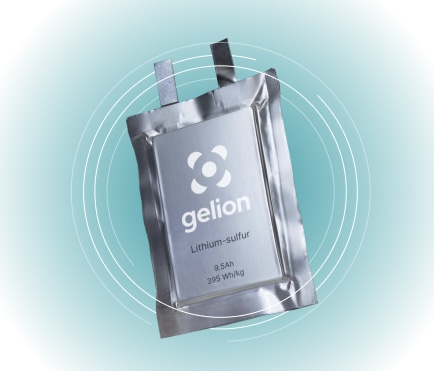Gelion, a spin-out from the University of Sydney, has achieved a high energy density milestone by fabricating a 395 Wh/kg lithium-sulfur 9.5 Ah pouch cell (commercial cell format). This result represents a c. 60% increase in the energy density (lower weight) compared with current lithium-ion batteries (approximately 250 Wh/kg).
Further to the announcement on 19 March 2024, Gelion had produced 1.0 Ah cells using the OXIS Gen2 cell technology that achieved energy density of 245 Wh/kg. The achievement of 395 Wh/kg aligns with the independent energy density modeling projections for a larger cell format.
By re-establishing this performance, building on the OXIS Gen 2 technology and IP acquired from Johnson Matthey, Gelion has set a baseline for comparison of its upcoming Next Generation cell which targets further performance improvements upon this announced result.
On 19 March 2024 Gelion identified that testing of its Next Generation cell technology is exhibiting expected solid-to-solid conversion behavior toward enhanced stability and longevity. Gelion will continue to update as it progresses these developments in addition to the silicon-sulfur cell development in cooperation with Ionblox.
Gelion’s ambition for its next generation platform is to unlock the potential of sulfur batteries for a wide range of global applications including mass market electric vehicles (EV), electric vertical-takeoff-and-landing (eVTOL) aircraft, drones, and stationary energy storage (ESS) as high Wh/kg translates to lighter batteries and opens many advantages for these markets. Sulfur being an abundant material offers a future not limited by geographically concentrated and controlled battery metals which significantly improves battery lifecycle sustainability.
“This result further validates Gelion’s Li-S technology plan. In 2023 we established a leading Li-S cell technology foundation following the acquisition of OXLiD and the IP acquired from OXIS and Johnson Matthey. Whilst these are still early results, we intend to build on them actively throughout 2024, unveiling and demonstrating the unique core proposition that Gelion is assembling”, says John Wood, CEO of Gelion.




